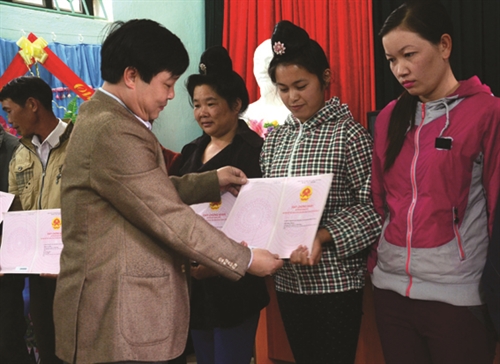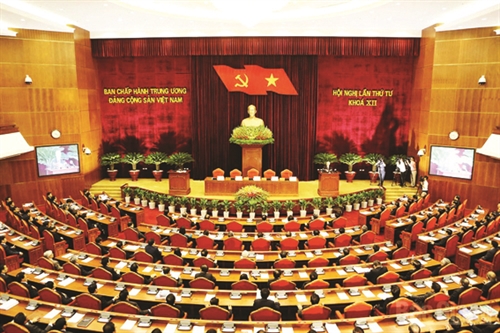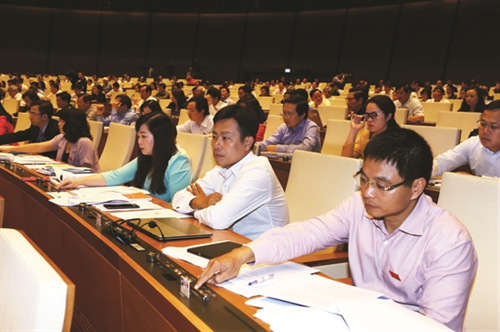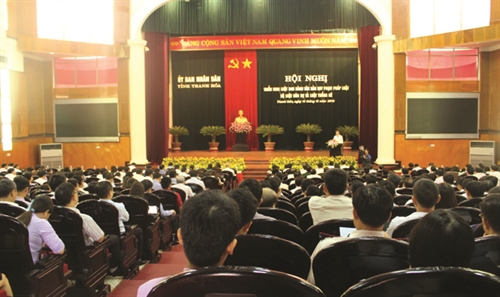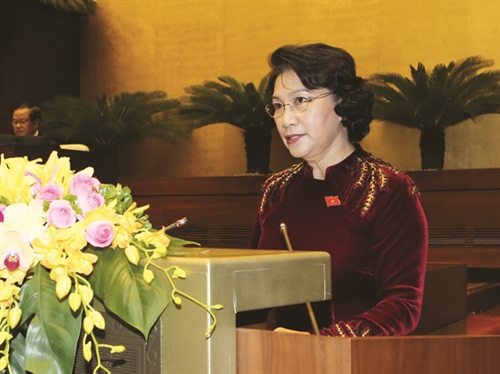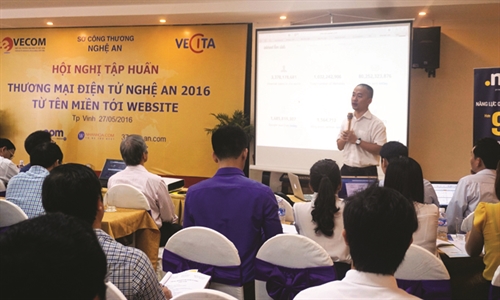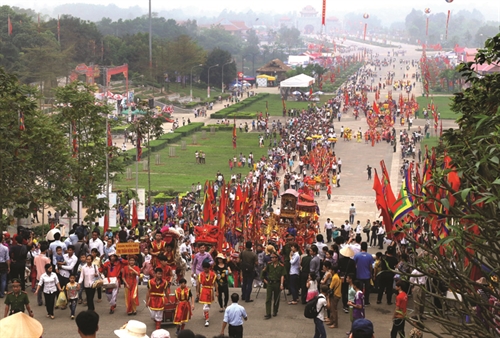Tra Nguyen
Civil relations involving foreign elements are those involving a subject who is a foreigner and a subject matter that is an asset located in a foreign country or a legal act that gives rise to, changes or terminates a relation in a foreign country. Involving foreign elements, civil relations of this kind are likely to be regulated by different legal systems. This makes the settlement of legal matters in these relations complicated, especially when legal systems adopt different approaches and make different provisions. The laws in most countries have special provisions setting out principles for the selection and application of a legal system to specific civil relations involving foreign elements (conflict of laws). In Vietnam, the 2015 Civil Code (the 2015 Code) has introduced new provisions on determination of laws applicable to civil relations involving foreign elements.
Under Clause 2, Article 663 of the 2015 Code, a civil relation involving a foreign element is that to which at least one of the parties is a foreign individual or legal person; or to which the parties are Vietnamese citizens or legal persons but of which the establishment, modification, realization or termination takes place in a foreign country; or to which the parties are Vietnamese citizens or legal persons but of which the subject matter is located in a foreign country.
New provisions on determination of laws applicable to civil relations involving foreign elements
Clause 1, Article 759 of the 2005 Code states that the civil law of Vietnam applies to civil relations involving foreign elements, unless otherwise provided for by this Code. Meanwhile, Clause 1, Article 663 of the 2015 Code says: “In case another law contains the provisions on laws applicable to civil relations involving foreign elements which are not contrary to Articles 664 thru 671 of this Code, such law shall be complied with; otherwise, the relevant provisions of Part Five of this Code shall be applied.” This expresses the respect for the principles of freedom and voluntariness in making commitments and agreements in civil relations in the process of international integration.
Principles of determination of applicable laws
The 2005 Code allows related parties to agree on application of laws in contracts, provided such laws do not conflict with the laws of Vietnam or treaties to which Vietnam is a party. If no such agreement is reached, Vietnamese law will apply, or if a treaty to which Vietnam is a signatory otherwise provides, this treaty will prevail. If the treaty or Vietnamese law refers to a foreign law to be applied, this foreign law will apply as long as such application or consequences of such application does or do not contravene the basic principles of Vietnamese law. If it is impossible to determine applicable laws in these cases, international practices will apply if such application or consequences of such application does or do not run counter to the basic principles of Vietnamese law.
However, Article 664 of the 2015 Code says that a law to be applied to civil relations involving foreign elements will be determined under the treaty to which Vietnam is a signatory or under Vietnamese law. In case such treaty or Vietnamese law permits the parties to choose a law to be applied to civil relations involving foreign elements, the chosen law will be applied. If it is impossible to determine an applicable law, the law of a country that is most closely linked with these civil relations will be applied.
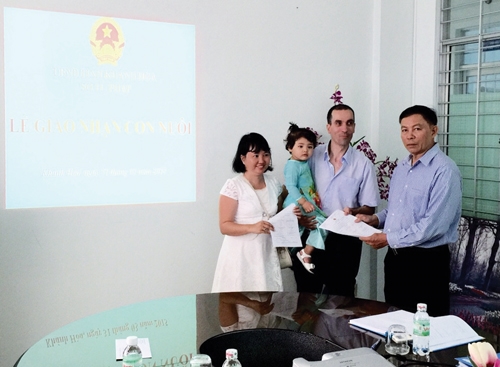 |
| A representative of Khanh Hoa province’s Justice Department hands over a child adoption decision to a foreigner__Photo: Justice Department of Khanh Hoa province |
So, what is new here is the order of priority of laws to be applied. The addition of the principle of application of the law of a country that is most closely connected with relevant civil relations involving foreign elements aims to enable competent authorities, especially adjudicating bodies, to settle civil cases and matters involving foreign elements. Substantially, the legal systems referred to in conflicts of laws are those most closely connected with relevant civil relations involving foreign elements and normally indicated (e.g., the law of nationality or law of place of permanent residence, depending on each specific civil relation).
As civil relations with foreign elements are diverse, so in many cases, relevant laws cannot enumerate all applicable legal systems. Hence, the above principles not only help adjudicating bodies be flexible in dealing with cases and matters in practice, avoiding the groundless application of Vietnamese law, but also show the international integration of Vietnam’s legislation governing civil relations involving foreign relations. Many countries use this approach when developing their conflicts of laws and this approach is also used in relevant treaties containing provisions on conflicts of laws[1].
Clause 2, Article 760 of the 2005 Code has used the expression “is most closely connected with.” However, a resolution of the Justice Council of the Supreme People’s Court is needed to guide the determination of the laws of countries that are closely connected with civil relations involving foreign elements with a view to ensuring the unified, but not arbitrary, application of this provision in practice.
Application of law to be referred to The 2015 Code states in Article 668:
“1. Law to be referred to include regulations on determination of applicable law and regulations on rights and duties of parties to civil relations, except the case prescribed in Clause 4 of this Article.
2. Where a Vietnamese law is referred to, its regulations on rights and duties of parties to civil relations will apply.
3. Where the law of a third country is referred to, its regulations on rights and duties of parties to civil relations will apply.
4. In the case mentioned in Clause 2, Article 664 of this Code, the law chosen by the parties will include regulations
on rights and duties of parties to civil relations and exclude regulations on determination of applicable laws.”
The 2015 Code adds specific provisions to clearly define the scope of reference to laws chosen for application. Substantive laws (excluding conflicts of laws) will be referred to only in case related parties are allowed to choose laws to be applied. In other cases, domestic law may be referred to with a view to increasing the application of Vietnamese law. In addition, the 2015 Code allows reference to laws of third countries, saying that if the law of a foreign country refers to the law of a third country, the provisions of such third country’s law concerning rights and duties of parties to civil relations will be applied.
Cases of non-application of foreign laws
Article 670 of the 2015 Code states that a foreign law, notwithstanding being referred to, will not apply if the consequences of such application do not conform with the basic principles of Vietnamese law; or if the contents of the foreign law are unidentifiable even though necessary measures prescribed by procedural law have been taken. In case a foreign law is not applied, Vietnamese law will be respected for.
Accordingly, a competent Vietnamese body may refer to the provision on non-application of foreign laws in order not to apply a foreign law in case, after having taken necessary measures under the procedural law, it cannot identify the provisions of such foreign law regulating the relevant civil relation. This provision aims to bind competent authorities to identify applicable laws. The parties to civil legal relations involving foreign elements may also refer to this provision to implement Vietnamese law if they cannot identify the provisions of a foreign law regulating such civil relations.
Moreover, Clause 2, Article 670 of the 2015 Code, which permits application of Vietnamese law when a foreign law cannot be referred to, aims to enable competent authorities to increase the application of Vietnamese law when settling civil relations with foreign elements.
Application of international practices
It is stated in Clause 4, Article 759 of the 2005 Code that international practices may be applied in civil relations involving foreign elements only when such relations are not regulated by Vietnamese law, treaties to which Vietnam is a party or contracts between related parties. However, in civil relations in general and those with foreign elements in particular, practices play an important role and regulate different civil relations. So, for civil relations involving foreign elements, there should be regulations permitting the parties to opt for the application of practices. In this respect, Article 666 of the 2015 Code allows the parties to choose international practices in the case prescribed in Clause 2 Article 664 of this Code, or to apply Vietnamese law if the consequences of application of such practices are contrary to the basic principles of Vietnamese law.
The 2015 Code also lists cases of non-application of international practices if the consequences of application of such practices contravene the basic principles of Vietnamese law.
Application of foreign laws or laws of a country having different legal systems
According to Article 667 of the 2005 Code, in case there are different ways of understanding an applied law of a foreign country, the application must follow the interpretation of competent authorities of such country. This provision truly reflects the substance of the application of foreign laws as a source of law for settlement of cases and matters. Nevertheless, it requires bodies and persons that are competent to apply foreign laws to keep improving their knowledge about foreign laws and foreign-language competency so as to properly understand and apply foreign laws.
Additionally, it is cited in Clause 3, Article 4 of Government Decree No. 138 of 2006 detailing the 2005 Code’s provisions on civil relations involving foreign elements that in case of selection of or reference to laws of a country having different legal systems, related parties may request the application of a legal system that most closely connected with them in terms of civic rights and duties. The problem is that it is hard to refer to the laws of some countries like China with separate legal systems in different territories (Hong Kong, Macau, etc.). The permission for related parties to choose legal systems to be applied in this case might lead to the non-enforcement of laws. To redress this, the 2015 Code stipulates in Article 668 that if the law of a country having different legal systems is referred to, the to-be-applied law will be determined according to the principles established by the law of this country.
In conclusion, the 2015 Code, with various new provisions on determination of laws applied to civil relations involving foreign elements, not only addresses the limitations of the relevant provisions of the 2005 Code but also helps improve the Vietnamese legal system to meet the requirements of international economic integration.-
__________________
References:
1. The 2005 Civil Code;
2. Government Decree No. 138/2016/ND-CP of November 15, 2006, detailing the provisions of the 2005 Civil Code;
3. Opinions on the provisions on civil relations involving foreign elements in the 2005 Civil Code - Assoc. Prof. LL.D. Nguyen Trung Tin.


